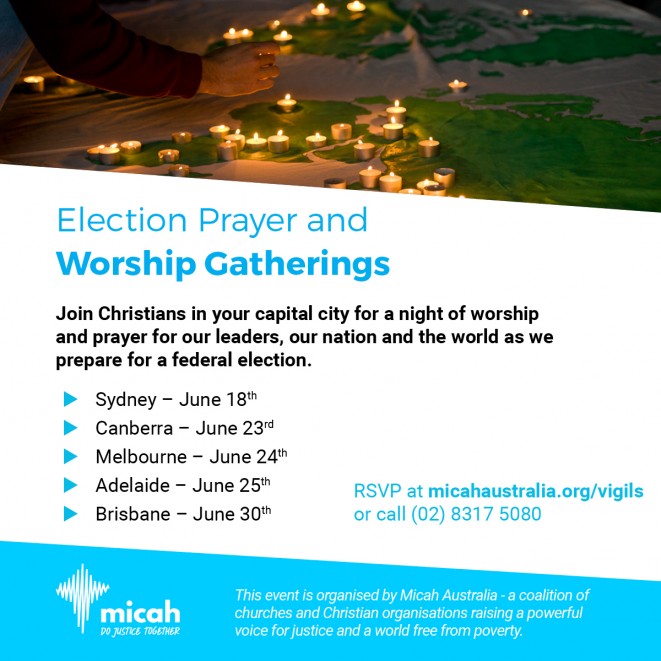The Highlands region of Papua New Guinea is known for tribal wars and this one has been deadly. After eighteen months of conflict between two tribes of a few hundred people, there are eight dead; seven on one side and one on the other.
Key infrastructure has been levelled. The aid post, school, property and gardens have been destroyed, and the church torn down. Both tribes are living in constant fear of retaliatory attack. The question on everyone’s mind is, “Am I going to lose another child, husband, brother or have my property destroyed?”
I am here in Papua New Guinea at the invitation of UnitingWorld’s partner, Young Ambassadors for Peace. Our small group has been asked to conduct a shuttle mediation between these two warring tribes with the hope of establishing a sustained peace.

We trek deep into the jungle through a valley in the Highlands, and after 50 minutes, we arrive in the presence of the tribe that had lost seven people in the conflict. The most recent died of a bullet wound the previous day. Arms are folded, pain and anger is written on every face, and the communication with us is brief. The general thrust is “the other tribe is to blame, go and talk with them!”
More trekking follows, deeper into the jungle, across a boundary line, and we find ourselves in the presence of the second tribe. They welcome us and one of the Young Ambassadors for Peace, UnitingWorld’s partner, stands to speak.
He is passionate and shares his tribe’s story of being in a similar place of anger, frustration and violent conflict with an opposing tribe. Both tribes suffered loss of lives, resulting in lifelong trauma. Most, if not all tribes in the highlands of Papua New Guinea have trodden this path before. The results are always the same: fear, anxiety, depression; loss of land, home and life.
I’m then invited to ‘take the stage’ on behalf of UnitingWorld. I look around and observe in the weathered faces of the old and the unflinching and distant eyes of the “young warriors,” yearnings common to all humanity. If this is to be a success, we’ll have to tap into their needs and fears.
What can I possibly add? I haven’t experienced tribal conflict or the murder of family members or destruction of my home. And yet, like others, I have experienced other kinds of violence in my family that destroyed my self-confidence and drive for life. I actually can share in their experience of fear, anxiety, depression and loss.
Sharing this allowed us all to empathise with one another – one of the most important steps towards peace. We all want recognition and acknowledgement, security, our basic needs to be met, love and the ability to live in peace, despite the mistakes of the past.
The tribespeople reveal that they’re exhausted from living in constant threat of retaliation. They want peace but don’t know how, because the other tribe appears uninterested. And they can’t cross the boundary line without being killed.
They can’t – but we can!
The Bishop of the region stands and makes some commitments to rebuild the church, aid post and school, and to resource them if a peace deal can be settled. Terms are written, including a possible meeting of key elders from each tribe and compensation. We are on the right track.

It’s well after lunch when we begin the trek back to the first tribe. The entire population of the village greet us on arrival and guide us to the ground in front of the church, which immediately causes a potential problem. It’s believed that a conversation on ‘Holy Land’ will be binding and could result in further death if broken.
Finally, the Reverend of the local church (pictured below) brings together the people, especially those who want revenge. We stand with them and empathise with their experience of loss, just as we did with the other tribe. We speak of peace and hope for new beginnings. It becomes evident that they have the same fears as the other tribe and also desire recognition, security and their needs to be met.

Two significant things then occur. One man stands and admits to instigating the conflict by stealing property and then destroying the aid post and school. Then an elder steals the attention of the audience and says that he has been wanting revenge because his son was killed in the conflict. The tension builds.
Then something incredible happens. He goes on to say that he can no longer live with this conflict and these constant threats to his tribe. He exclaims that what they need is peace to move forward into a better future.
Here he is, paving the way for an alternative future that would break the cycle of revenge.
In this moment we are all reaching together for a future of peace and reconciliation. I can see in this moment God’s ministry of reconciliation (2 Cor. 5:18) taking place. We gather together with this tribe and pray for the families, for the children, and for a new and hopeful future. God is accomplishing the humanly impossible!
Six months later I receive a call. One of our Young Ambassadors for Peace tells me that after further peace talks these tribes are now living together in harmony, wanting to construct a new community of peace and justice. What more could we want?

As I look at this last photo I took in the valley, I’m reminded of what community should look like. As it draws me in I find it hard to imagine the violence because it looks so peaceful and serene. It provides a portrait through which we can imagine a peaceful and transformed community.
It illustrates to me that lasting peace formed out of violence and brokenness is possible. But sustaining peace demands several commitments, including:
- A space where people’s voices can be heard and their experiences acknowledged and validated
- The ability of people to be honest about their experiences of loss and pain
- A deep sense of empathic concern for the people whose stories are told
- A determination to re-see the humanity in the ‘Other’
- The desire and ability to equitably provide for the basic needs of every person in the communities involved
These ingredients were present in the Highlands of Papua New Guinea and the results now tangibly express their importance in creating peace.


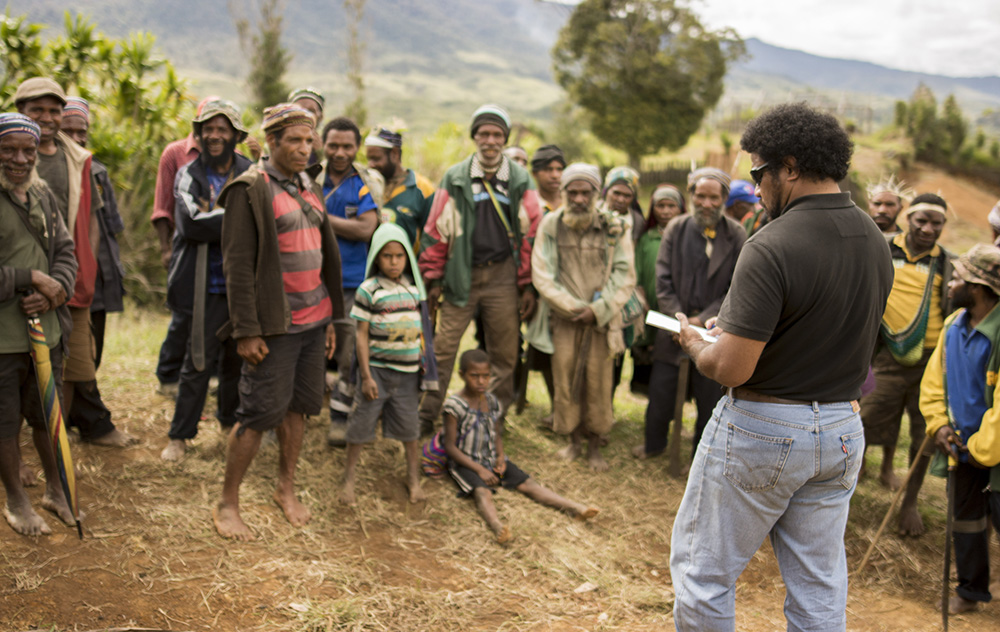





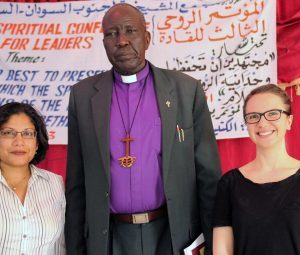


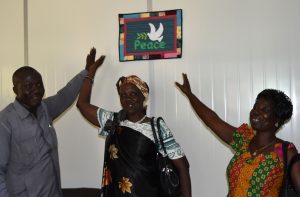


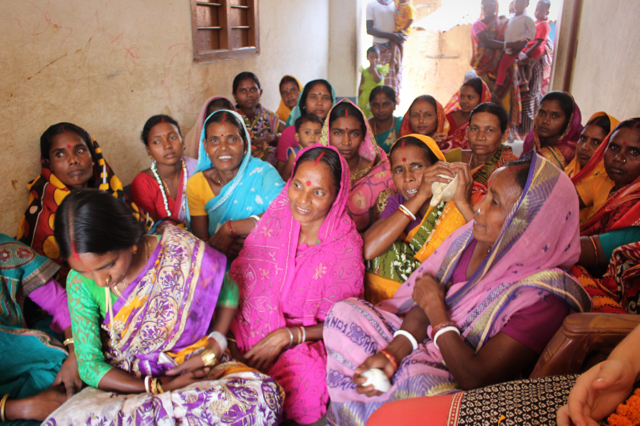
 Do you ever have days, even while you’re still in the middle of them, that you know will always stick with you? My first visit to a village in West Bengal, India, was one of those days.
Do you ever have days, even while you’re still in the middle of them, that you know will always stick with you? My first visit to a village in West Bengal, India, was one of those days. Answers were honest and direct. Life is hard, but this project is making a difference. Our children at the study centre are working hard and their grades are improving – they’re no longer at risk of dropping out of school and we’re not scared for them. This woman here (she is pointed out to us) was supported to apply for and access the old age pension, so she doesn’t have to work all day long in the forest gathering leaves anymore. Our community worker, from our village (he stands up), helped us get government grants to build houses and toilets and access to water sources for irrigation. The government health worker is visiting and we know how to stay healthy, how to keep our children well. Our women’s self-help groups (they raise their hands) have saved money this year, and have plans to start their own business.
Answers were honest and direct. Life is hard, but this project is making a difference. Our children at the study centre are working hard and their grades are improving – they’re no longer at risk of dropping out of school and we’re not scared for them. This woman here (she is pointed out to us) was supported to apply for and access the old age pension, so she doesn’t have to work all day long in the forest gathering leaves anymore. Our community worker, from our village (he stands up), helped us get government grants to build houses and toilets and access to water sources for irrigation. The government health worker is visiting and we know how to stay healthy, how to keep our children well. Our women’s self-help groups (they raise their hands) have saved money this year, and have plans to start their own business.